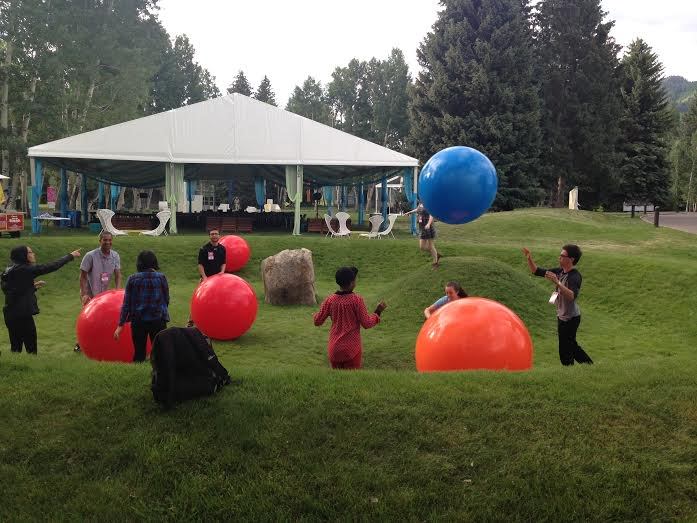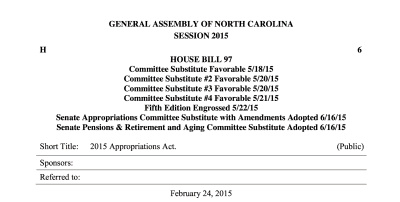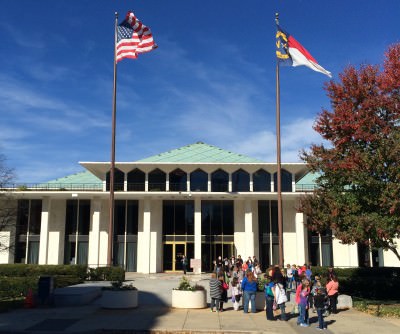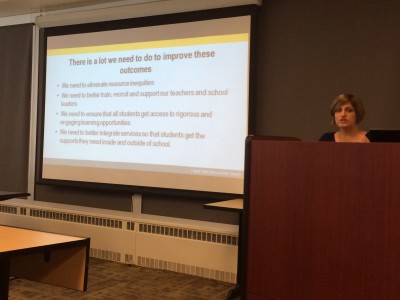As I sat across from my fellow Bezos Scholars, cotton drifting in the wind like snow and the sun beating down heavily, it occurred to me that the past few days had been more than an exposé into the issues plaguing our world. The Aspen Ideas Festival (AIF) had implored us to examine the spheres of influence at work in our world today. Their hope, as NY Times journalist David Brooks put it, was to “provide a context in which others could think.”
So what brought a high school student such as myself to the Aspen Ideas Festival?
The Bezos Scholars Program at the Aspen Institute was established by Jackie and Mike Bezos, parents of Jeff Bezos, the CEO of Amazon, and directors of the Bezos Family Foundation. The Foundation is an independent organization that allows students to reach their full potential and to put their education into action. This program selects 12 students (and their fellow educators) from the US and five from the African Leadership Academy to partake in a year-long leadership development program, a program that kicks-off with a week-long, all-expense paid trip to attend both the AIF and private strength-building workshops run by managers of the Bezos Family Foundation. The program continues through the school year, as my Educator Scholar and I work to launch our own sustainable local ideas festival targeting communal problems or inequalities.
On my first day on campus of the Aspen Institute, I was fortunate enough to sit in on a variety of programs and panels. My morning took off with a compelling argument from Karen Armstrong on the subject: “Is Religion really Violent?” After indulging in my passion for world history, Armstrong gave an insightful analysis on how “a religion becomes a world faith once powerfully patronized by an empire or secularist movement.” Needless to say, my teacher and I ran to buy her book as the audience filtered out.
As I listened to the intriguing perceptions of both AIF scholars and my fellow Bezos Scholars, I began to think,
What makes a true leader?
It wasn’t until a round table discussion with Clifton Kinnie, a student activist and protestor, that I realized a true leader has the courage to share and/or act upon a vision. Leaders should ultimately be willing to shed their pride and lean into discomfort for the sake of progress or moral equity.
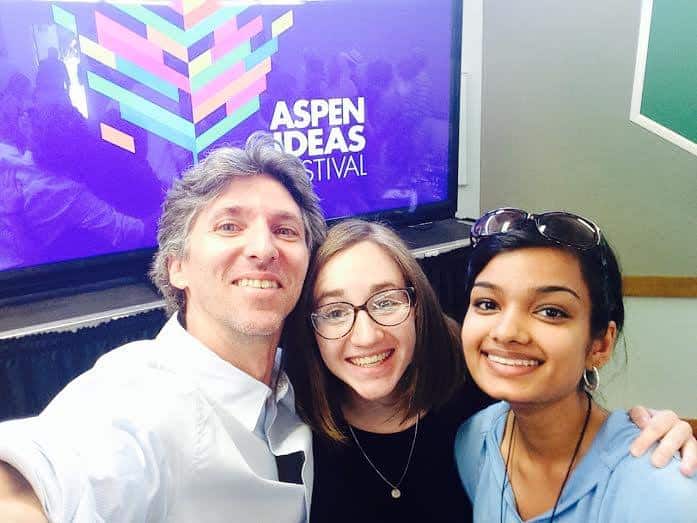

The opportunity to speak out and ask questions at AIF programs is what truly plants the seeds of thought and change in leaders all across the globe. The fact that as a high school student, I could go up and ask Damien Woetzel, retired principal dancer of the New York City Ballet and current director of the Aspen Institute’s art program, how to advance visual and performing arts in my community, or ask David Leonhardt, a Pulitzer Prize-winning New York Times editor, how to reconcile a sense of objectivity through quantitative journalism was absolutely surreal.
Listening to notables like Emily Parker and Michael Anti describe how in China changes in restriction of rights/freedoms are perceived as “The New Normal,” and how the the Internet is really the only thing that gives people a platform to gather on made me value the freedom of speech we have in authentic settings (like the AIF) here in the US.
Why do we separate people into valued groups?
Is artificial intelligence feasible?
How do we eliminate the culture of campus rape in higher institutions?
How do we differentiate between what is relevant and what should be appreciated in the arts?
These are just some of the questions I ventured into during my time at the Ideas Festival. Even after discussions ended, questions lingered in my mind like the cotton stuck on my clothes. When I wasn’t in and out of panels or talks, I was thoroughly occupied with either private conversations/meals with speakers like Walter Isaacson, Amanda Ripley, Jane Chu, Katie Couric, William Kamkwamba, Clifton Kinnie, and Nina Khrushcheva, or engaged in physically and mentally challenging team-building/leadership activities set up by our wonderful Bezos Scholar Team.
As if hiking up a mountain, riding in a gondola, or taking selfies with notable speakers wasn’t surreal enough, on my last night in Aspen I attended a dinner at Jackie and Mike Bezos’ home where lo and behold, Mr. David Brooks, NY Times Op-Ed columnist and author of The Road to Character, engaged in an enlightening conversation with me about faith, humility, and my volunteer interests.
During our chat over a tasty meal of pasta salad and corn on the cob, he emphasized the importance of connecting one’s suffering to a greater moral purpose. In response to the obstacles we face in life, I found his response that “a soul needs opposition worthy of it to achieve greatness” to be both eye-opening and comforting. Dinner at Jackie and Mike’s was by far the highlight of my trip to Aspen; the evening began with an incomprehensible magic show by esteemed mentalist Eric Mead, and ended with all us of us simply dancing and singing in a scholar talent showcase.
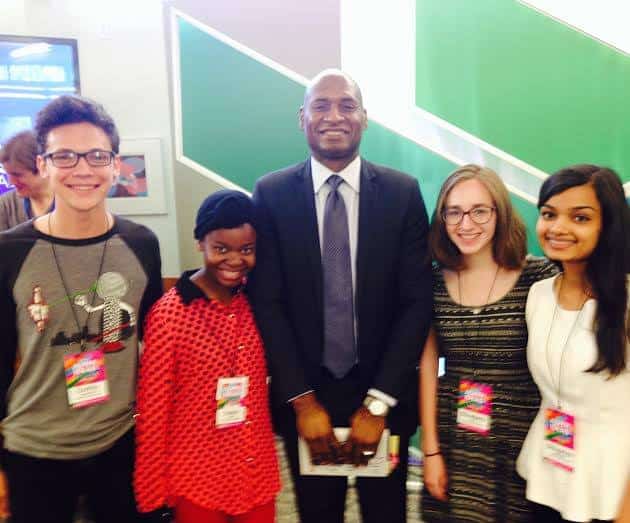

“Don’t change the world; change your sphere of influence.”- Charles Blow
In just a week I was not only able to make extremely meaningful connections with students and teachers from across the globe, but also able to think deeply about racial equality, much-needed reforms to the justice system, the importance of arts to cultural posterity, and the vitality of STEM to our rapidly progressing society. As I spend the next few months delving deeper into the specific issues plaguing our community, drafting grant proposals, and communicating with local professionals I hope I can bring a similar “passion to innovate” to my fellow peers. I will remain eternally grateful to Jackie and Mike Bezos and all those with the Bezos Family Foundation for giving me the chance to experience the ideas that shape our lives.
